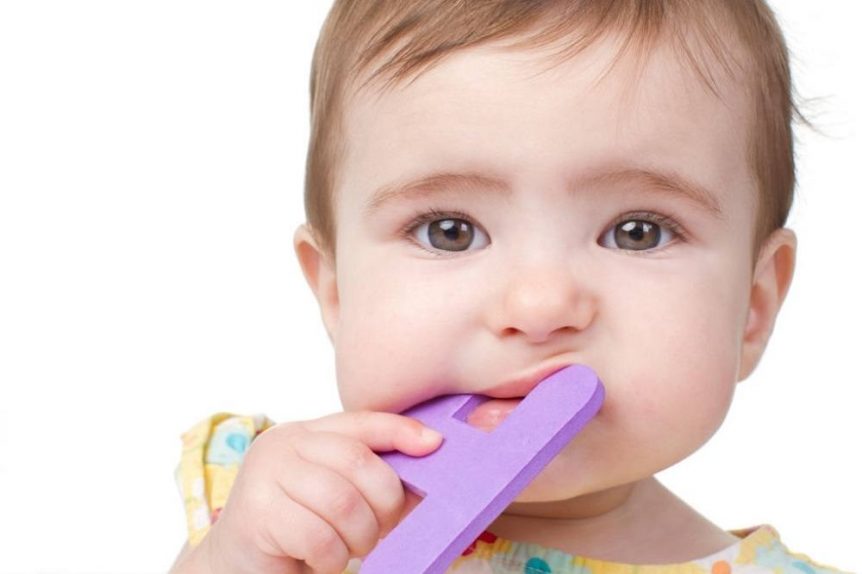Babies are precious and parents are so proud and happy to have them. Being a parent also means responsibility and have someone else depending on their parents for their every need. It’s now about this little bundle of joy not about themselves.
Babies generally begin teething around the age of six months, some may begin as early as three months, depending on their development stages. When the tooth pushes through the gums, it causes a tremendous amount of pain for the baby.
Teething Solutions for Pain
Caring for a one-year-old teether can be frustrating because they already have teeth, it’s ideal to place fingers in their mouths to massage their gums. It’s important to keep toddlers hydrated as they can lose their appetite. Simple ideas are placing ice in a sock or cloth and allow them to chew on it, a frozen breadstick or fruit will provide comfort. Don’t let a one-year-old chew on toys that aren’t recommended for teething as they can cause pressure in the blood and rush it through the gums causing more pain and drooling. Drooling occurs when the tooth is placing pressure on the gums. The salivary glands will begin to swell causing more drooling. Teething toys can be kept frozen to help alleviate the pain. If mothers are breastfeeding, a teething baby may not nurse as they used to. Babies may try to bite instead of nurse, if that’s the case, try using a teething ring.
Child’s Mood and Behavior

It’s natural for a one-year-old to become irritable during the teething process. Their behaviors may change quite frequently one minute they’re happy and the next they’re crying. Toddlers don’t understand why they’re in pain and may not be able to tell their parents; therefore, they act out by being fussy and cranky at times when they’re usually content. Children may also experience sleepiness nights, and parents too, due to the pain. When this occurs place cold teething toys near their mouth and they will begin biting it. The biting will help ease the pain caused by the teeth cutting through the gums.
Medication as Teething Solutions
Several over-the-counter medications can be used for teething babies. Ibuprophen and Acetaminophen are the most common pain relievers for babies and children. Swelling should decrease also. As the child grows older, Children’s Motrin may be used.
Strep throat and tonsillitis are types of infections that can occur with teething. Parents should take temperature and check for sore throat. These infections can cause earaches, radiate to the cheeks, and gums. If symptoms are still present after a couple of days, contact the pediatrician for antibiotics. Monitor for side effects such as blisters or cysts, should these issues occur contact the doctor immediately.
Every parent wants to protect their child from infections, but teething is a process of every baby’s life. Some babies may experience mild pain while others have excruciating pain that may require a doctor’s care. Parents and babies can relax peacefully.
- Best learning toys for children as they age - July 19, 2023
- Luxury yacht charter vs. standard yacht charter: Which is right for you? - February 7, 2023
- Comfortable Shoes for Being on Your Feet All Day - January 10, 2023

Like It? Share It!